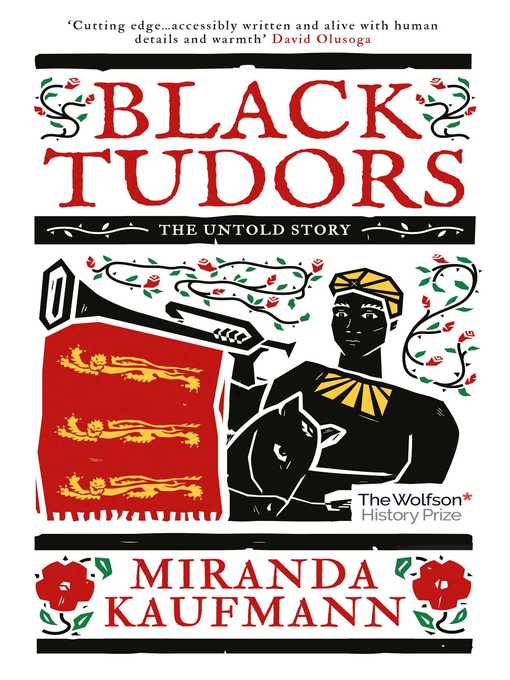
Black Tudors
The Untold Story
کتاب های مرتبط
- اطلاعات
- نقد و بررسی
- دیدگاه کاربران
نقد و بررسی

November 1, 2017
Kaufmann (senior research fellow, Univ. of London) aims to correct the misinformation about the presence and roles of Africans in Tudor history, presenting the stories of ten black Tudors as well as anecdotes of others. Ranging from musicians to sailors to tradespeople, the men and women featured in this work prove that class played a more significant role than race in an individual's quality of life in medieval England. The comprehensive bibliography and notes sections demonstrate Kaufmann's extensive research, yet her obvious passion for the topic sometimes leads more toward exposition than narrative, which for some readers, may make getting engrossed in the stories difficult. David Olusoga's Black and British touches on the Tudor era, but through devoting a whole work to this time period, Kaufmann is able to delve much deeper into the topic, exposing untold stories that alter readers' perceptions of British attitudes toward race. VERDICT Providing a compelling take on a rarely written about element of Tudor history, this volume is highly recommended for readers interested in a scholarly work on race and African history.--Katie McGaha, County of Los Angeles P.L.
Copyright 2017 Library Journal, LLC Used with permission.

Starred review from August 28, 2017
The very concept of black Tudors may sound unlikely, but in this highly readable yet intensively researched book, Kaufmann, senior research fellow at the University of London’s Institute of Commonwealth Studies, makes clear that people of African descent were residing in England centuries before the postwar Windrush generation and were not necessarily enslaved. By examining in detail the lives of 10 previously obscure men and women, Kaufmann depicts the great diversity of their experiences in 16th- and early-17th-century England. John Blanke, a trumpeter to Henry VII, lived at the Tudor court and earned twice the annual wage of a white agricultural laborer, while mariner John Anthony’s travels took him to Virginia just as the first enslaved Africans arrived in the colony. The exotically named Cattelena of Almondsbury was an unmarried African woman who managed to make a life for herself in rural Gloucestershire. Kaufman also persuasively argues that the enslavement of Africans emerged as a response to the socioeconomic conditions of England’s Caribbean and North American colonies, rather than as an inevitable result of a supposedly inherent racism within early modern English culture. Kaufmann’s crucial contention, in conjunction with her lively prose and fascinating microhistories, should draw some well-deserved attention. Agent: Charlie Viney, Viney Agency.

October 1, 2017
An intriguing history of Africans in Tudor England.Kaufmann (Senior Research Fellow/Institute for Commonwealth Studies, Univ. of London) presents the stories of 10 African men and women engaged in a variety of occupations, from trumpeter to trader. The author argues that the common perception that all Africans were enslaved by the British is erroneous and that Renaissance England had many free Africans who were part of the social fabric. "Despite the insatiable appetite for all things Tudor, from raunchy television series to bath ducks modelled as Henry VIII and Anne Boleyn," she writes, "the existence of the Black Tudors is little known." Through meticulous archival research, Kaufmann creates compelling portraits of her subjects, including a trumpet player at Henry VIII's court, a salvage diver, a circumnavigator, a porter, a silk weaver, a Moroccan convert, a prince involved in trade negotiations, a mariner, a woman involved in sex work, and an independent single woman. Since they left few documents behind, Kaufmann pieces together their histories from church records, references in various documents by influential Englishmen, literary works, paintings, and other sources. Each story is anchored in the social and political history of the time. Thus, readers learn much about Henry VIII's courtiers; West African deep-sea divers, who used no diving equipment but could reach sunken ships to retrieve goods; Francis Drake and his treacherous ways; prostitution in Tudor and Stuart England; and the processes of silk weaving and dairy farming. The narrative is engaging, and the author's argument about how Africans were generally accepted in Tudor England is persuasive. She provides a wealth of detail and only occasionally gets lost in minutiae, making the book a highly instructive history of an understudied part of Tudor societyAn eminently readable book that offers contemporary readers valuable insights into racial relations of centuries past.
COPYRIGHT(2017) Kirkus Reviews, ALL RIGHTS RESERVED.

November 15, 2017
Racial diversity in Tudor England? Kaufmann, senior research fellow at the University of London, shines an illuminating beacon on a fascinating subject that has long been relegated to a dimly lit historical closet. In a series of lively, informative sketches, she plays historical detective, unearthing little-known facts, anecdotes, and records pertaining to 10 individuals representing a socioeconomic cross section of the Afro-British population of the era. A small yet visible and viable subgroup, these Tudor citizens participated in a variety of occupations (court trumpeter, diver, sailor, silk weaver, prostitute, etc.) that reflect the economic and cultural diversity of their demographic. Predating formal British involvement in the transatlantic slave trade by approximately 100 years, this slice of social history provides a fresh, new slant on one of British history's most popular and well-trod periods.(Reprinted with permission of Booklist, copyright 2017, American Library Association.)

























دیدگاه کاربران